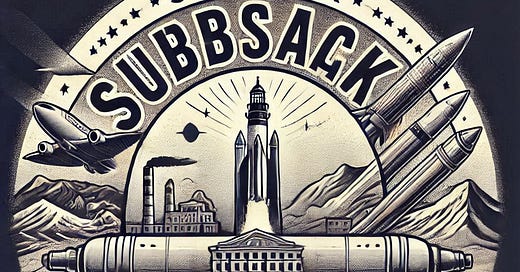Spending my time on SM platform X and the cesspool of lies, ignorance, and intellectual dishonesty, a common reply from MAGA when we post about “saving our democracy” is, “We are not a democracy; we are a Republic.” Technically speaking, they are correct; however, their differences are much more nuanced.
In this essay, I want to explain the key differences between a Democracy and a Republic and why when those who make the claim that we are a Republic are being intellectually dishonest.
Let's begin with how political science defines Democracy.
“A form of government in which all eligible citizens have the right to equal participation, either directly or through elected representatives, in the proposal, development, and creation of laws.”
In order to compare the differences between the two, we must know that political science defines a Republic as “a form of government in which the power is held by the people and exercised by representatives that they choose to elect.” Simply put, a republic is a nation governed by elected representatives and an elected ruler.
Those who state, “We are a republic, not a democracy,” make it seem like a democracy and a republic are mutually exclusive. They usually aren't; a republic is a type of representational Democracy with some checks and balances enshrined in the constitution that safeguard the rights of minorities. A "pure" democracy would impose the rule of the majority in every sphere of life without any safeguards.
The key difference between a democracy and a republic lies in the limits placed on government by the law, which has implications for minority rights. Both forms of government use a representational system, where citizens vote to elect politicians to represent their interests and form the government.
In a republic, a constitution or charter of rights protects certain inalienable rights that the government cannot take away, even if a majority of voters has elected it. In a "pure democracy," the majority can impose its will on the minority.
The United States is a democratic republic with a constitution that can be amended by a popularly elected government.
I think if we break down the differences between a Democracy and a Republic by the philosophy, social structure, economic systems, and history of each one, it will provide a more comprehensive overview of the key differences and similarities.
Philosophy
Since we have already defined Democracy and Republic, let's talk about the philosophies of each one.
In a democracy, the community of people holds power over how they are governed. Kings and tyrants are seen as threats to the people's innate rights, and all eligible citizens get an equal say in decisions.
Republics oppose rulership by a single person. All eligible citizens get an equal say in decisions through their elected representatives, and the inalienable rights of individuals are protected by law to safeguard against a majority abusing the minority.
Social Structure
There isn't much difference between the social structure of Democracies and Republics because they are both meant to resist separation by political or economic class. However, in both forms of government, class distinctions can become pronounced due to having a capitalist society, and we can see how these economic and political distinctions vary from state to state.
Economic System.
Again, there's not much difference between the two forms of government and their economic systems. Both systems tend to be free-market economies, and the policies that govern our economics are chosen by the voters (or their elected representatives).
The above shows how Democracies and Republics are similar. Now, I will follow up with the most significant differences between the two. As I explained earlier, the critical difference between the two is how individual rights are approached. For example:
Religion
This provides a great example of how these two forms of government differ. In a Democracy, freedom of religion is generally permitted, but the majority faction may limit religious freedom for the minority faction. However, in a Republic, freedom of religion is permitted because there is a constitution that prohibits interfering with religious freedom.
Private Property
Private property provides another example of how Democracy and Republics approach individual and property rights. Private property is permitted in both forms of government. However, in a Democracy, limits can be placed on property ownership, whereas in Republics, there is a constitutional prohibition on interfering with property rights.
I have tried to simplify the explanation of their key differences and some of their similarities.
By definition, we are a Republic, but many of us, including politicians, refer to us as a "democracy. " This is for the representational republic that exists and does not imply or infer that we are a “direct democracy.”
I like to explain it like this:
Our Founding Fathers developed the Constitutional framework for our Constitution based on Democracy. The structure of our Constitution is based on Representative Democracy, which makes our form of government a Republic. So, whether you want to save our Democracy or our Republic, in theory, neither is wrong. It just became an intellectually dishonest debate because, well, that's just how it goes in the era of MAGA and Trump.




Though I like to be a bit of a contrarian, I found myself agreeing with every single word. This is exactly how I feel too.